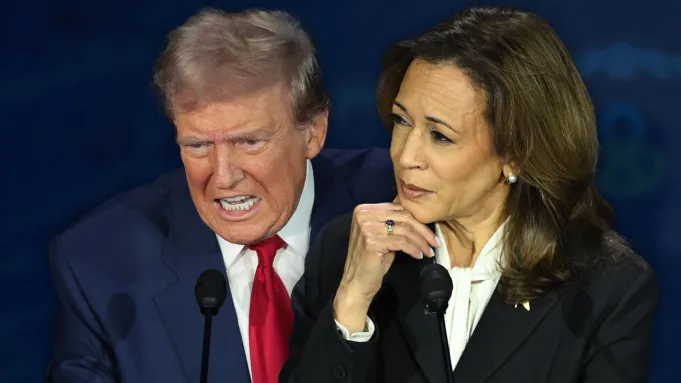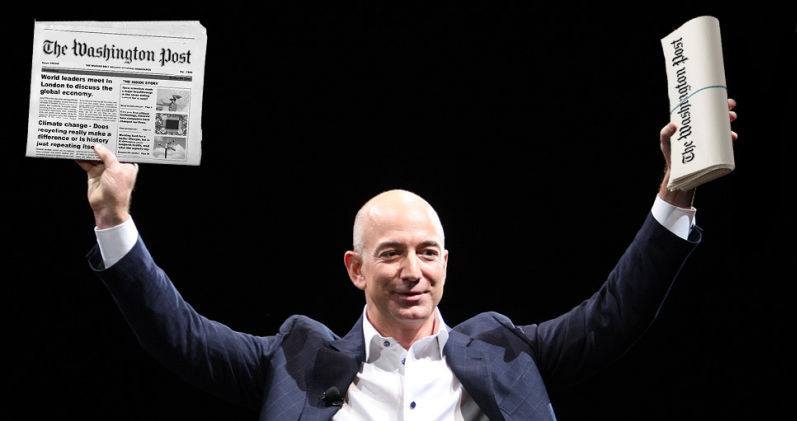The highly anticipated debate, which many have predicted will significantly affect the election results, was held on ABC News, over a month after Harris replaced Biden as the Democratic candidate. In the lead-up to the debate, the candidates’ preparation strategies were highly publicized: In addition to policy brush-ups on both sides, Trump’s team reportedly aimed for a less incendiary version of his usual presence, while Harris’ preparation partially focused on presenting herself as the more composed and trustworthy option. Hoping to incite interruptions from Trump, her campaign requested that the microphones be turned on the whole night, but was unsuccessful.
All of this preparation came to a head in Philadelphia on Tuesday as the two candidates stepped into the debate hall. Harris strode up to Trump and shook his hand. The debate then started with a question about the economy.
This was an issue Trump was encouraged to focus on by his advisers, but his answer was vague and ended up veering into the topic of undocumented immigrants, who he claimed are “taking over the towns” and “going in violently.” He also made a halfhearted—and generalizing—attempt at appealing to voters of color: the immigrants, who he claimed came from “prisons and jails, mental institutions and insane asylums,” were “taking jobs that are occupied right now by African Americans and Hispanics.” He threw in unions for good measure, saying that they “will be affected very soon.”
“I created one of the greatest economies in the history of our country. I’ll do it again and even better,” he concluded.
Harris drew on her experiences growing up in the middle class to appear more relatable, again attempting to draw a distinction between her and her opponent. She proposed a tax cut for new families and small businesses, and criticized Trump’s economic plan as being “all about tax breaks for the richest people.” While her statements were markedly less deceptive than Trump’s, she did generalize Trump’s planned 20% tariffs on foreign imports as a “Trump sales tax,” when, while the tariffs would lead to an increase in price for consumers, it would not be on the level of a universal 20% sales tax. The yearly toll on families, projected by Harris to be around $4,000, would actually be closer to $1,700, according to the Peterson Institute for International Economics.
When the question of abortion access followed, Trump brought up the false claim that some Democrats support the execution of a baby after it is born.
“There is no state in this country where it is legal to kill a baby after it’s born,” moderator Linsey Davis clarified.
He also dodged a question about whether he would veto a national abortion ban. Harris persisted in pressing him for an answer, in a departure from Biden’s passive performance in June.
The rest of the debate went similarly, but Trump seemed to grow more agitated with each topic. While his initial responses were relatively tame, they grew more unhinged as the night progressed.
“In Springfield, [immigrants are] eating the dogs. The people that came in. They’re eating the cats. They’re eating the pets of the people that live there,” he bizarrely claimed, in what has now become a viral clip.
“Now she [Harris] wants to do transgender operations on illegal aliens that are in prison,” he said at another point, in response to a question about fracking.
Harris’ performance was far more collected. Even with the microphones off, it was evident that she succeeded in making Trump look both belligerent and disoriented—the latter an echo of Trump’s portrayal of Biden just one month ago.
“Perhaps we do not have in the candidate to my right the temperament or the ability to not be confused about fact. That’s deeply troubling,” she said.
But it wasn’t a perfect night for her either, as she was confronted about her recent changes in policy, particularly about fracking and public medical insurance. She has moved toward more conservative positions on both issues—in 2020, she supported Medicare for All and banning fracking. Now, she has flipped on both. Her answers were vague and unconvincing, and she implied that she had always supported fracking. Another notable flip-flop that didn’t appear in the debate is her newfound support for a wall along the US-Mexico border, an idea she had opposed when Trump introduced it in 2015.
In the end, while both candidates may have tried to make their campaigns look better by distorting the truth—as is customary to any election—Harris, at most, exaggerated the truth and cherry-picked, while Trump spouted false accusations and pulled claims out of thin air. Most of Harris’ claims hold up to a fact-check, and even her most misleading claims—of which there are a much smaller number than Trump’s—are mostly based in fact. While I do not agree with some of her proposed policies, Harris came across as the most reliable candidate and is the best choice in the flawed two-party system.









